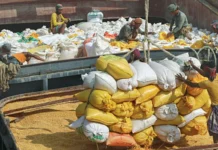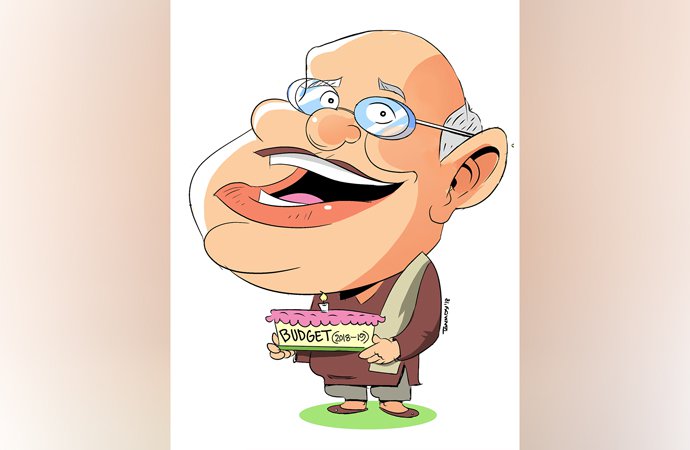Yasir Wardad and Shah Alam Nur
Export of readymade garments (RMG) to India would face a major setback as the big neighbour’s parliament slapped nearly 16 per cent countervailing duty (CVD) on import of the products from Bangladesh, RMG sector insiders said.
The Indian measure came when the RMG exporters in Bangladesh starting viewing the neighbouring country as the next biggest export destination after the US and the EU following Delhi’s withdrawal of import duty on 48 garment products last year.
Despite many barriers like devaluation of the Indian rupee against the US dollar or the Lilliput debt issue, the growth in RMG export to India marked a notable rise-nearly 35 per cent-in the first seven months of the current financial year, according to the research cell of Bangladesh Garment Manufacturers and Exporters Association (BGMEA).
But the imposition of 15.36per cent CVD on the RMG products from Bangladesh came as ‘a bolt from the blue’ for the apparel exporters.
They said any kind of increase in duty would severely affect Bangladesh’s exports to that country.
India in the Union Budget for 2013-14 imposed the CVD of 12.36 per cent and an additional cess of 3 per cent on garments imported from Bangladesh.
“This was one of the major demands of the knitwear and ready-made garment manufacturers here, who were complaining regularly that the duty-free import of garments from Bangladesh was hurting the Indian industry badly,” the Indian daily Hindustan Times reported Wednesday.
The newspaper reported: “The textile industry of Bangladesh was enjoying duty-free access to the Indian market after Prime Minister Manmohan Singh’s visit to the neighbouring country in September 2011. The decision had allowed as many as 46 textile items (according to BGMEA, it is 48) from Bangladesh to hit the Indian market without any duty”.
“The Indian parliament also withdraws central excise duty on its branded apparel products, which will hinder the Bangladeshi products’ access to India,” Bangladeshi garment exporters’ leaders said.
BGMEA President Shafiul Islam Mahiuddin told the FE that India was going to be a rising RMG destination for Bangladesh.
“But such duties will ruin this possibility in its embryonic stage”, he said.
Referring to India as a major cotton producing country, he also said the imposition of CVD would deal Bangladesh a double blow. If Bangladesh imports cotton from India as a raw material and then exports RMG to the country, the products would surely lose competitiveness due to payment of higher duties, he added.
Former president of Bangladesh Knitwear Manufacturers and Exporters Association (BKMEA) Fazlul Haque said exports to India were nowhere near the expectation due to complex rules and regulations in different states of India.
“Their bureaucrats impose such kinds of duties and regulations. This is not understandable to many of us,” he said.
Their central government has granted duty-free access. But the excise and customs duties vary from state to state in India, Mr Haque said.
“The Bangladesh government should talk immediately with India in this regard for the sake of its export expansion”, he added.
Nassa Group Managing Director Khandakar Mohammed Saiful Islam said: “Suits, jackets, trousers, blazers, undergarments, pyjamas, bathrobes, T-shirts, singlets and other vests, jerseys, pullovers, cardigans, waist-coats etc from Bangladesh have a great demand in India.”
“We need just a level-playing field in India. It could help us reduce the huge trade gap,” he added.
Exporters’ Association of Bangladesh (EAB) President Abdus Salam Murshedy told the FE that the trade gap with the neighbour stood at nearly US $3.5 billion in the first seven months of the current financial year when Bangladesh exported goods worth nearly US $ 50 million.
Mr Murshedy, also managing director of the Envoy Group, said exporters would urge the concerned ministries in Bangladesh to hammer out a solution immediately in this connection.
“After that, we will make a formal statement on the Indian move”, he said.
The trade gap between the two countries was more than $5 billion in fiscal year 2012 which was in India’s favour, according to the Export Promotion Bureau (EPB).
Exporters said the CVD would further increase the trade gap.
Source: Financial Express BD









